Bruce Foxton - Interview
by Paul Waller
published: 29 / 4 / 2013
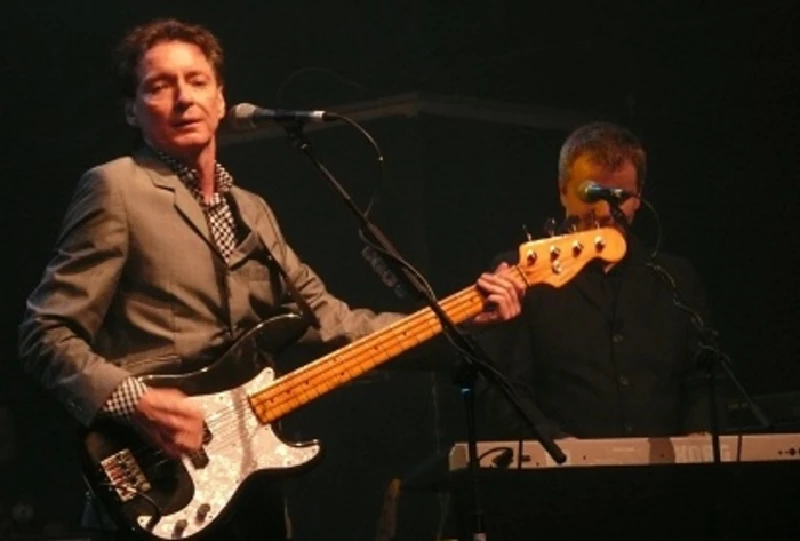
intro
Paul Waller chats to Bruce Foxton about his long-awaited second solo album 'Back in the Room', and his years in both the Jam and Stiff Little Fingers
Bruce Foxton found fame with the Jam alongside band mates Paul Weller and Rick Buckler, and it was with them that he became one third of maybe the quintessential guitar band of the late 70s and early 80s. By the time of their demise in 1983, the band had had number one singles and albums and sold out huge shows across the country. After that intense time spent in the spotlight. Foxton released a solo album ‘Touch Sensitive’, and then became a member of Stiff Little Fingers for well over a decade. Today he is still treading the boards as part of From The Jam with vocalist Russell Hastings and guitarist Mark Brzezicki. Not only this, but he has just released his second and far superior solo album, ‘Back in the Room’. It may bear his name on the cover, but the group that joins him in From The Jam all feature and bring stellar performances throughout. The album also features contributions on three tracks from Paul Weller, It’s truly a thrilling come back from a guy who never really went away. Pennyblackmusic joined Bruce as he prepared for an upcoming tour, and found out just how he managed to put together such a great record at a an age where for most, their best work is behind them. Plus, of course, we probed to find out more about the inner workings of the Jam. PB: Many thought that From The Jam would be a one off type of deal or that the popularity would wane after those initial tours, but that’s not been the case. Your fan base is still growing. It’s well-deserved, but were you shocked at the band’s success? You hit the ground running. BF: When it started properly in 2007, Rick Buckler was behind the kit. Being the first time we played together in 24 odd years, there was a lot of interest. When we went out on tour that first time, venues were selling out way in advance and it was almost like we were back in the big time, like it was with the Jam originally. But when Rick left in 2009, we did take a bit of a knock initially. I think people thought, “Well, what is he going to do? Who’s going to play drums if he continues?” We had to re-establish ourselves yet again. But I wanted to continue, Rick sadly threw the towel in, but then Mark Brzezicki from Big Country was around and having been mates for a long while he got involved. Yeah, it has taken a while to get it back up to a good level and to have the audience say, “Hang on they’re still fucking great,” and think that we are still doing it with a passion and conviction. If anybody wanted confirmation that we could do it, then we have proved it. PB: The proof is in the pudding, and when the pudding is as good as the ‘Back In The Room’ album then what else is needed? BF: Yeah, we never take anything for granted. We did a Great British Alternative Festival at Butlins over the weekend, and we were part of that, and the audience was phenomenal. Fair enough, it was a big festival and it had loads of bands on, and they weren’t all necessarily there to see us, but we had a couple of thousand in the venue we were playing in on the Saturday night. We’ve just played Bedford Corn Exchange and sold out Warrington, and the attendances are getting bigger. PB: Had the album came out and been a let-down, I think the audiences may have dwindled. BF: Maybe PB: Thankfully it was a solid effort with potential classics all over it. BF: Well, thank you for saying so. It did get some really good reviews. The reaction was positive in most of the papers. When Russell and myself set out to record that album, we just wanted to try and write as many good melodic pop songs as we could, and we came up with twelve in the end, and I was proud and still am proud of every track on the album. When I listen to it every now and again, I never think, “Oh, I’ll skip that one”. PB: How did you piece together the more soulful ‘Don’t Waste My Time’? BF: Well there is no in depth meaning to it. It is just a relationship song. It’s incredible how songs develop with technology being how it is. Russell lives down Bogner so he would send me up a riff on his iPhone, and I would put it onto my very basic studio on my PC and develop it from there. Straightaway I thought it sounded great, and it had a bit of a soul influence in there which made it all the better. It sounded great as a demo but drastically different, but when Steve Cropper (from Booker T and the MGs fame-Ed) put his guitar work on there that for me is what really made it. Simple as that, I like the groove; I like the feel of it. We didn’t think initially that we would release it as a single available as a download, but, yeah, it’s a bit of a grower that one. Shame that Radio 2 didn’t think so. PB: Another track on the album, ‘Window Shopping’ sounds smart, adventurous and forward thinking. BF: Absolutely, that was a contender for what should be out there as the single. Well, I say single, but it’s not like the old putting it out on vinyl days, is it? Maybe we should go for something like that next time. Maybe the powers that be would go for something like that at the radio stations. We do get good coverage on regional radio but with the major ones it is hard work, even when we have the likes of Paul on a track or Steve Cropper being on a track, but there you go. ‘Window Shopping’ was one where we play it in the set along with ‘Number Six’ from the new album; thankfully those two go in the set almost seamlessly. PB: Have you kept in touch with Paul Weller since the recording of the LP at all? BF: Oh yeah, definitely. I don’t hassle him and get on his nerves or stuff, but we are good mates and when we get together we always have a laugh. It’s not every day of the week of course. He’s really busy, and obviously is a big family man and his wife had twins last year. He is spending a lot more time at home doing the family bit. So, yeah, bear in mind this is only my interpretation, but I think he’s just picking shows here and there because he’s spending most of his time at home. I am sure that when we get around to doing some more recordings that if Paul is around he’ll be on it. What’s great about his recording studio is that he often pops down for whatever his business is, and he’ll often have a listen and I’ll say, “Do you want to play something on it?” It’s quite casual. Nothing on the ‘Back in the Room’ album was that organised. It was just people bowling into the studio, and us saying, “Do you wanna play a bit on that?” PB: From The Jam has suffered a bit from the ‘reunion band’ tag with your feet firmly planted in the past, but now with the ‘Back in the Room’ album you have found yourself with an open and intriguing future ahead of you. It feels like all bets are off, and you have put the group’s potential back into your own hands. BF: Yeah, that’s how we feel; when we get time we will put more of the Bruce Foxton ‘Back in the Room’ tunes into the set. Obviously we will always play Jam songs, but we do want to move forward as well. I am very optimistic about the future; my calendar for the year is well rammed, and a lot of that is down to the awareness of us that the ‘Back in the Room’ album has achieved. PB: You raised the cash for the recording through the PledgeMusic web site, which must have been an experience; it really does put your fan base to the test. BF: It sure does. We did try a couple of major labels, but unless they see you selling 100,000 plus units then they are not really interested. For instance, Island Records really loved what they heard of the album even though we didn’t have it completed at that point. We played them five or six songs, and at one stage it looked like we might have got a deal there, but at the end of it all they did their figures and thought, “Well, maybe not,” so they passed. I think it was Russell that heard about Pledge via the guy that does our Facebook, so we went online and had a look and thought, “Well, what’s this all about? How does it work?” Turns out that it’s a great way to get the fans’ involvement, and they feel like they are part of the making of the record which they were. We didn’t have that much dough to record an album, so you go in and set a budget. We had to think about just how much did we need without making any money ourselves obviously, so what you do is you set the budget and see if you can achieve it. It’s really wacky if you go on there and see the different things that artists offer. With us we offered people a chance to play with us on a few rounds of golf and for the audience we have, the people that like our music, if they play a bit of golf like Russ and myself do (and we are not great) then I suppose it’s like, what a buzz for them. What better than to come out and have a bit of a laugh with a couple of the band members for three or four hours. We had no idea how it would go, but we achieved our target figure fairly quickly, so a big thank you goes out there to all those people who helped. It works great. The money isn’t taken from their credit cards until it’s finished. It’s just a good deal all round basically, and we managed to get a good quality record out of it as well. PB: How has the reaction been to the new songs when you play them live? BF: Well we are only playing a couple of them at the moment in the set. ‘Number Six’ and ‘Window Shopping’ so far, but we have played ‘Find My Way Home’ although we haven’t for the last couple of weeks because we changed drummers as Mark Brzezicki has gone off with Big Country, so now we have a guy called Tom Heel who’s a really young lad. He plays with a band called the Moons, which is Andy Croft’s band who plays with Paul Weller a lot. He just rolled into the studio one day and played keys on a couple of tracks, but he is also a fantastic drummer… I’ve forgot the original question now because I was waffling (Laughs). PB: We were chatting about fan reaction. Oh yeah… So we have played three new tunes from the album in the set, and I would say that the real hardcore fans that have been there since day one of the Jam have been very complimentary about how well the songs fit in and how good they are that they stand up in their own right against the likes of ‘Down in the Tube Station at Midnight’ or whatever, no matter where they are positioned in the set. Those songs are quite the hard act to follow, and thankfully they do stand up. PB: How will you handle the set list for the ‘All Mod Cons’ 35th anniversary tour. Will you play new songs on those shows? BF: Yeah, we did the ‘In the City’ anniversary last year, and we had to put other songs in. That album only lasts thirty-eight minutes, and we have to play for an hour and a half, so it will be the ‘All Mod Cons’ album which we need to get into the studio and rehearse for, although it won’t be as daunting as ‘In the City’ because we have already played quite a few songs off ‘All Mod Cons’ before. There will be some other Jam album tracks and some other singles plus some more ‘Back in the Room’ stuff. It should give us the opportunity when we go back to rehearsals to work up a couple more of the tracks off the new album, and put them in there as well. PB: Changing subject now, your bass technique has become the stuff of muso legend, and, of course, being in a three piece it’s very prominent when you listen back to the original Jam recordings. Were you self-taught; was there anybody out there you yourself based your style on? BF: I was self-taught really and that stems back from the early days of the Jam. Of course, we were a four piece originally with Steve Brookes on guitar. Paul was on bass and when he left we did try and audition a few replacement guitarists, but we just couldn’t find anybody that fitted the bill, not only as a musician but that we could get on socially with, and obviously that is a massive part of being in a band. You have to get on with the other guys. In the end Paul just said, “Let’s swap instruments,” so I took over the bass, and he showed me a couple of little bass lines, and I just developed my own style from there. I just stumbled around it until I had developed what I do now. Even though I came about it naturally and taught myself, I was obviously influenced by McCartney and John Entwistle. PB: Your performance on ‘Scrape Away’ off the ‘Sound Affects’ LP, for instance, forms the very essence of that song. BF: Yeah, that is one that we are talking about bringing into the set. It’s very much free form that one. For me it was drastically different. PB: You tend to downplay the importance of ‘News of the World’ I think, at least in terms of what that song actually did for the Jam, what with Weller going through writer’s block at a time when the bands popularity had begun to wane. By writing it you kept the flag raised. BF: Yeah, I can see what you are saying; it got us through that sticky period with Paul. Now, even though we haven’t rehearsed it yet with the new drummer, along with ‘Smithers-Jones’, it is one of the two songs that the crowd really wants to hear when they come to the concerts. If we don’t play them, people leave really disappointed. They are almost at the stage now where they are as important as something like ‘A Town Called Malice’. PB: Do you ever tire of playing ‘Smithers-Jones’? It is one of those songs that will no doubt be with you for life. BF: No, if we get a bit tired or sick of a song then we just drop it for a while. There is such a wealth of Jam songs to choose from that we don’t need to put anything in the set where we will think, “Oh no, here it comes again.” In fact we just played it this Sunday, and it went down a storm, I do enjoy playing it and people enjoy listening to it, but at some points, yeah, I do feel like that. If I feel like that about anything, I would just give it a rest. It isn’t like we’re desperate for stuff. PB: So there you were enjoying some great success with your singles regularly going into the top 20, but then after the release of ‘The Eton Rifles’ in late ’79 you found yourself being a member of a top 5 band. The Jam at this point had become one of the most popular bands of its day. Looking at the touring and release schedule for you at that time, it would seem that you never had a chance to let the success sink in until after you split. Was that the case? BF: A little bit, I guess, I mean there was a lot more pressure put on you and especially Paul on the song writing front of things, and you do feel as if you are on a treadmill basically, but you just keep going. I did get to take it in a bit. We got to number four or five or whatever it was, but I didn’t have time to think about it. It was only afterwards that it all sinks in. Of course it was great to have those top 10 hits, but I like to think that we just kept on doing what we did. PB: After you did call it a day, you were not gone too long before you released your first solo record, ‘Touch Sensitive’. Looking back, what are your thoughts about that now? BF: I reckon it’s probably half a decent album. Although the record company signed me for a three or four album deal, reading between the lines you can tell that basically they wanted to cash in on the success of the Jam. At that time I didn’t have a manager and I was fronting a band… I think I’d bitten off more than I could chew to be honest. We had Paul’s dad, John, managing us in the Jam, bless him, and that was quite unique, so when it came to my record I thought, “What am I going to do?” So I decided to do it myself for a while but it was just too much, having to write the songs and organise the tour with an agent. And when I presented the songs to Arista Records, and they all just said, “Yeah, it’s great.” Nobody said, “Well, hang on! That’s a bit naff, aint it? You can do better than that Bruce.” Nobody wanted to wait until I had enough good songs for the album. There was no quality control. I needed to have somebody to say to me that, yeah, I have five or six songs here that are alright but the other are shite. Can you go back and write some more? It’s a shame really that I didn’t have anybody to tell me that. I was encouraged to keep going after the Jam, and I didn’t read between the lines that it was just a quick cash in job for the label. After that when it came out to mixed reviews and it didn’t sell millions of copies, they looked at what they could sell I think and just wanted to part company. But when things like that happen you look around and see what else you can do, and then I joined Fingers, and that was great. You can’t turn back the clock. PB: Were you a fan of Stiff Little Fingers when you came to join them in the very early 90s? And how do you think you fit into the dynamic of that band? BF: Well they were always there, I knew Jake Burns from the Jam and Stiff Little Fingers paths’ crossing when we were on the road whether it was in the UK or whether it was in Europe. We used to hang out quite a bit, invariably at hotel bars where we would get pissed. We were good mates. So in 1990 he called me up and told me Ali McMordie was leaving the band, and asked if I would be up for playing bass. Because I knew Jake and Dolphin Taylor on the drums, I just jumped at the opportunity. It was great. I said, “Where is the first gig?” and he said, “Tokyo,” so I thought that that was even better. The thing is I didn’t know a lot of Stiff’s music. They were one of those bands that I knew were around and they were doing all right, but I never really listened to them. I didn’t have any of their albums in my collection, so I thought that I’d better go to one of their gigs before I committed myself to it. So I went to Brixton Academy to watch them, and there were 5001 people that had got in, and I seemed to be the only person that didn’t know the songs, and everyone else was going nuts. I just thought, “Christ, I’d better crack this,” so I knuckled down and learned the songs. It was a great fifteen years and we recorded three or four albums in my time, so I got more involved and I put my stamp on the Fingers sound once I got involved in the writing and recording of the songs. Obviously with the earlier stuff like ‘Inflammable Material’ I was just emulating Ali as best I could with just a few subtle changes here and there. PB: Before Stiff Little Fingers you also had a hand in the career of the Vapors who had a hit with their ‘Turning Japanese’ single. You co-managed them. What did that involve? BF: Good question that really! Obviously they were local lads as well from Godalming in Surrey, and there they were playing in this pub that I used to go to. So I spotted them, and thought they had some great songs, and they were well up for me taking their demo tapes around and we got a deal for them, but I realised straight away that I wouldn’t have enough time to deal with them properly because at the time the Jam were really full on. I couldn’t manage them on my own, so I asked John Weller whether he wanted to do a 50/50 thing here. It sounds a bit poncey, but my role was more with the artistic side of the band and speaking to them on more of a musical level and giving them any help I could in the musical area. That’s where I came into things. John did more of the business side of things with the contracts and speaking to agents to get them gigs and so on. PB: Did you play any part in the recordings they did? BF: No, no. PB: Do you think their ‘New Clear Days’ LP gets overlooked these days? It has got some cracking songs on it. BF: Oh yeah, definitely. It was a real shame that they split up. Once again this is only my interpretation of it, but it seems like the pressure got to them and they imploded, didn’t they? It’s a real shame. Maybe it was a case of being too much too soon, I did feel guilty you know, I spotted these guys. You get them a deal, and they have these great songs, and then they split up and initially can’t stand each other. I didn’t really mean for that to happen (laughs). Sorry about that, I wish I hadn’t have started it. But, yeah, ‘New Clear Days’ is an overlooked album, just like the Jam’s ‘This is The Modern World’ is. PB: Finally Bruce, have you starting writing a follow up for ‘Back in the Room’ as of yet. It seems like you guys have a lot of swagger about yourselves at the moment. It might be wise to strike whilst the iron is hot? BF: Yeah, yes we have. I said to a guy earlier on. It’s not going to be another 25 years before we put another record out because I’d be about 80 then I think. We have six or seven tunes already that are in a crude demo form, and I would like to see us get that album out around this time next year really. It’s a question of finding the time to develop the songs and go into the studio as we are full on at the moment. I don’t even know right now if we will try the Pledge thing again or try another major. We are just not sure how, but it will happen. PB: Thank you.
Band Links:-
https://www.brucefoxton.com/https://www.facebook.com/FromTheJam
https://twitter.com/FromtheJam1
Picture Gallery:-
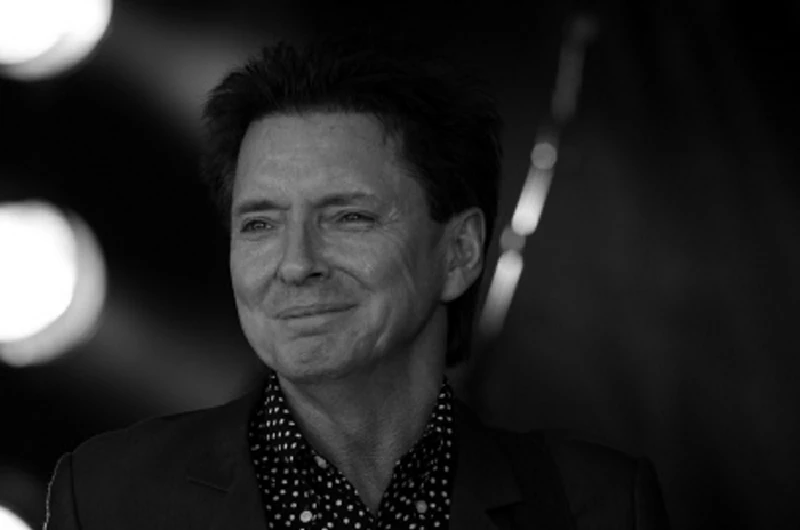
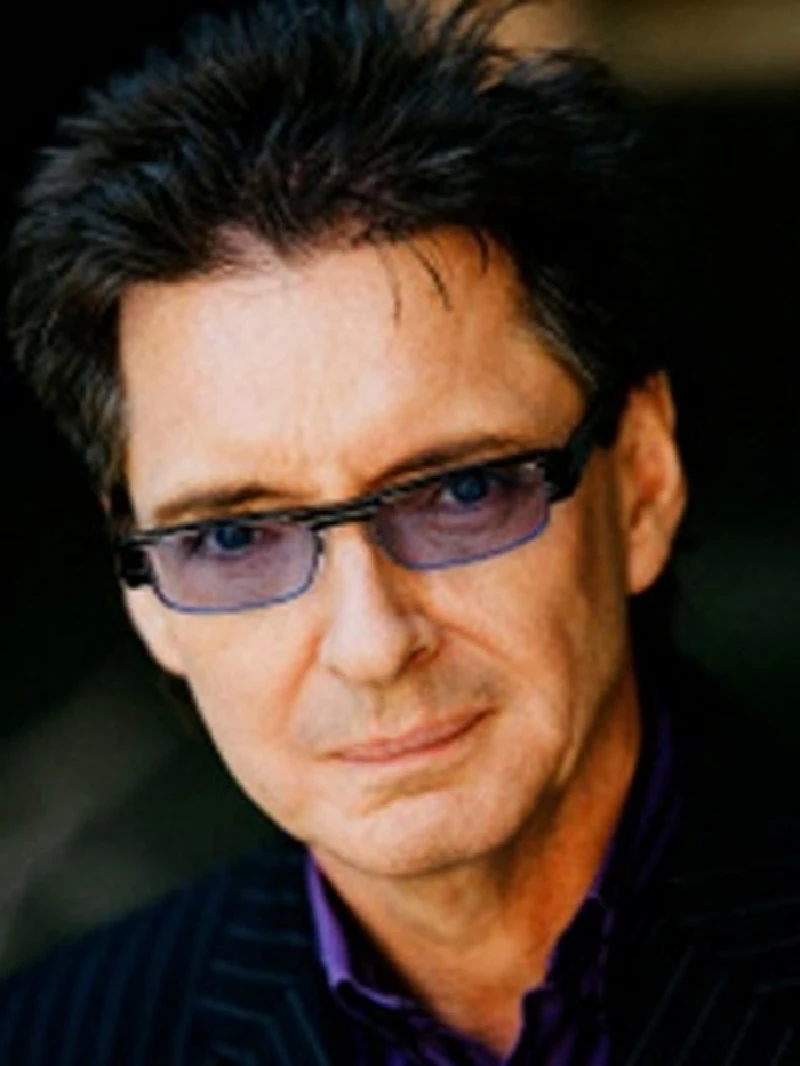
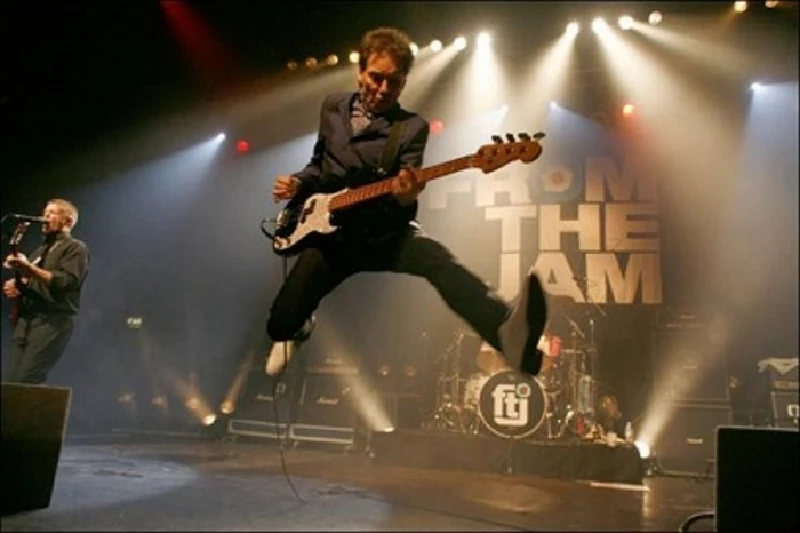
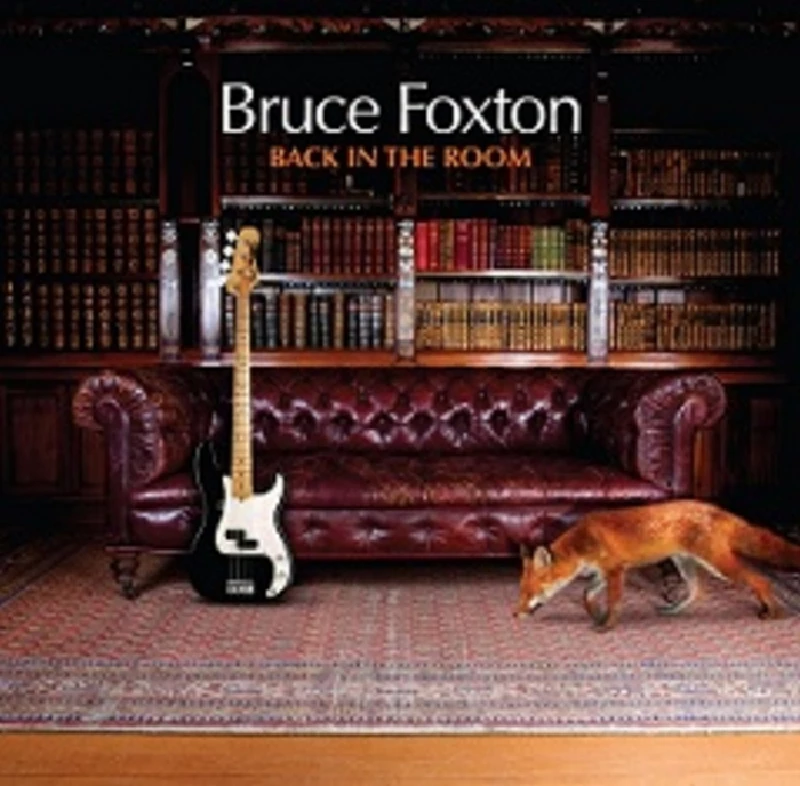
interviews |
|
Interview (2020) |
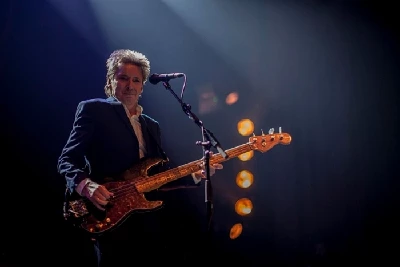
|
| Bruce Foxton talks to Andrew Twambley about his current band From The Jam, his years in The Jam and the 40th Anniversary tour of their 'Sound Affects' album. |
| Interview (2019) |
| Interview (2008) |
soundcloud
reviews |
|
Smash the Clock (2016) |
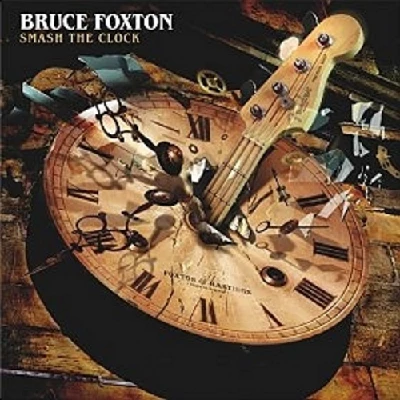
|
| Former Jam bassist Bruce Foxton follows up his excellent ‘Back In The Room’ album with another collection of 60's inspired pop |
| Back in the Room (2012) |
most viewed articles
current edition
Carl Ewens - David Bowie 1964 to 1982 On Track: Every Album, Every SongArmory Show - Interview with Richard Jobson
John McKay - Interview
Colin Blunstone - Thalia Hall, Chicago, 16/7/2025
Bathers - Photoscapes 1
Billie Eilish - O2 Arena, London, 10/7/2025
Visor Fest - Valencia, Spain, 26/9/2025...27/9/2025
Loft - Interview
Sir Tim Rice - Interview
Robert Forster - Interview
previous editions
Manic Street Preachers - (Gig of a Lifetime) Millennium Stadium, Cardiff, December 1999Heavenly - P.U.N.K. Girl EP
Beautiful South - Ten Songs That Made Me Love...
Peter Perrett - In Dreams Begin Responsibilities Interview Part One
Boomtown Rats - Ten Songs That Made Me Love....
Oasis - Oasis, Earl's Court, London, 1995
Trudie Myerscough-Harris - Interview
Coldplay - Wembley Arena. London, 16/8/2022
Prolapse - Interview
Pixies - Ten Songs That Made Me Love...
most viewed reviews
current edition
Davey Woodward - Mumbo in the JumboSick Man of Europe - The Sick Man of Europe
Lucy Spraggan - Other Sides of the Moon
Phew, Erika Kobayashi,, Dieter Moebius - Radium Girls
Suzanne Vega - Flying With Angels
Bush - I Beat Loneliness
Amy Macdonald - Is This What You've Been Waiting For?
Alice Cooper - The Revenge of Alice Cooper
Blueboy - 2
Cynthia Erivo - I Forgive You
Pennyblackmusic Regular Contributors
Adrian Janes
Amanda J. Window
Andrew Twambley
Anthony Dhanendran
Benjamin Howarth
Cila Warncke
Daniel Cressey
Darren Aston
Dastardly
Dave Goodwin
Denzil Watson
Dominic B. Simpson
Eoghan Lyng
Fiona Hutchings
Harry Sherriff
Helen Tipping
Jamie Rowland
John Clarkson
Julie Cruickshank
Kimberly Bright
Lisa Torem
Maarten Schiethart